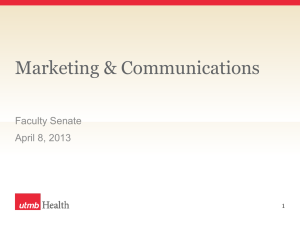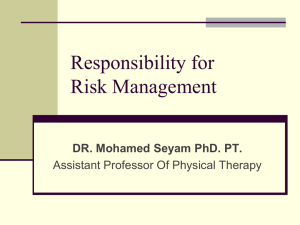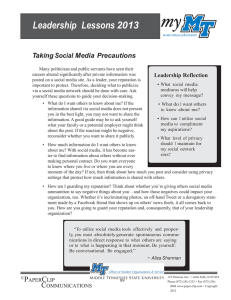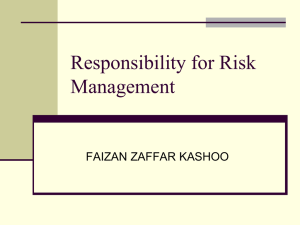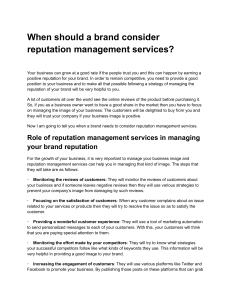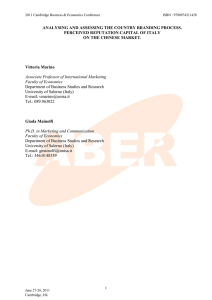Crisis Communication
advertisement
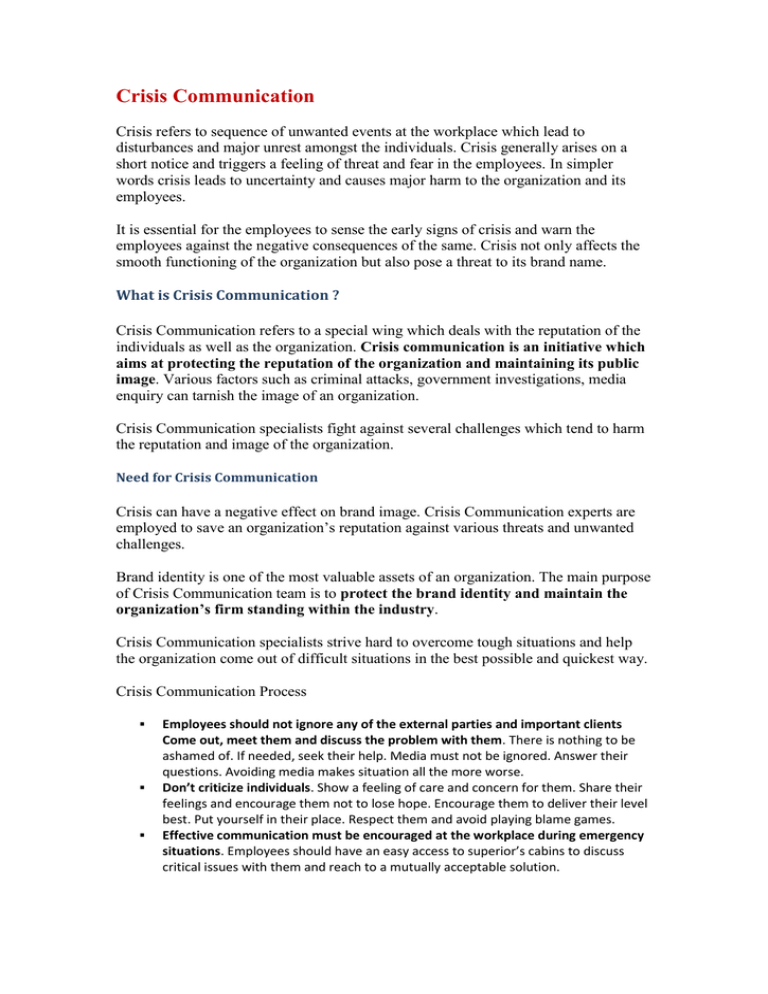
Crisis Communication Crisis refers to sequence of unwanted events at the workplace which lead to disturbances and major unrest amongst the individuals. Crisis generally arises on a short notice and triggers a feeling of threat and fear in the employees. In simpler words crisis leads to uncertainty and causes major harm to the organization and its employees. It is essential for the employees to sense the early signs of crisis and warn the employees against the negative consequences of the same. Crisis not only affects the smooth functioning of the organization but also pose a threat to its brand name. What is Crisis Communication ? Crisis Communication refers to a special wing which deals with the reputation of the individuals as well as the organization. Crisis communication is an initiative which aims at protecting the reputation of the organization and maintaining its public image. Various factors such as criminal attacks, government investigations, media enquiry can tarnish the image of an organization. Crisis Communication specialists fight against several challenges which tend to harm the reputation and image of the organization. Need for Crisis Communication Crisis can have a negative effect on brand image. Crisis Communication experts are employed to save an organization’s reputation against various threats and unwanted challenges. Brand identity is one of the most valuable assets of an organization. The main purpose of Crisis Communication team is to protect the brand identity and maintain the organization’s firm standing within the industry. Crisis Communication specialists strive hard to overcome tough situations and help the organization come out of difficult situations in the best possible and quickest way. Crisis Communication Process Employees should not ignore any of the external parties and important clients Come out, meet them and discuss the problem with them. There is nothing to be ashamed of. If needed, seek their help. Media must not be ignored. Answer their questions. Avoiding media makes situation all the more worse. Don’t criticize individuals. Show a feeling of care and concern for them. Share their feelings and encourage them not to lose hope. Encourage them to deliver their level best. Put yourself in their place. Respect them and avoid playing blame games. Effective communication must be encouraged at the workplace during emergency situations. Employees should have an easy access to superior’s cabins to discuss critical issues with them and reach to a mutually acceptable solution. Information must flow across all departments in its desired form. One should not rely on mere guess works or assumptions during crisis. Make sure the information you have is accurate. Crisis communication specialists must learn to take quick decisions. Remember one needs to respond quickly and effectively during unstable situations. Think out of the box and devise alternate plans for the smooth functioning of organization. Make sure information is kept confidential. Serious action must be taken against employees sharing information and data with external parties. Such things are considered highly unprofessional and unethical and spoil the reputation of the organization. The superiors must evaluate performance of employees on a regular basis. Ask for feedbacks and reports to know what they are up to. Conduct surprise audits to track performance of employees. Organizations hire crisis communication specialists to overcome tough times as well as to maintain their reputation and position in the market. http://www.managementstudyguide.com/crisis-communication.htm

